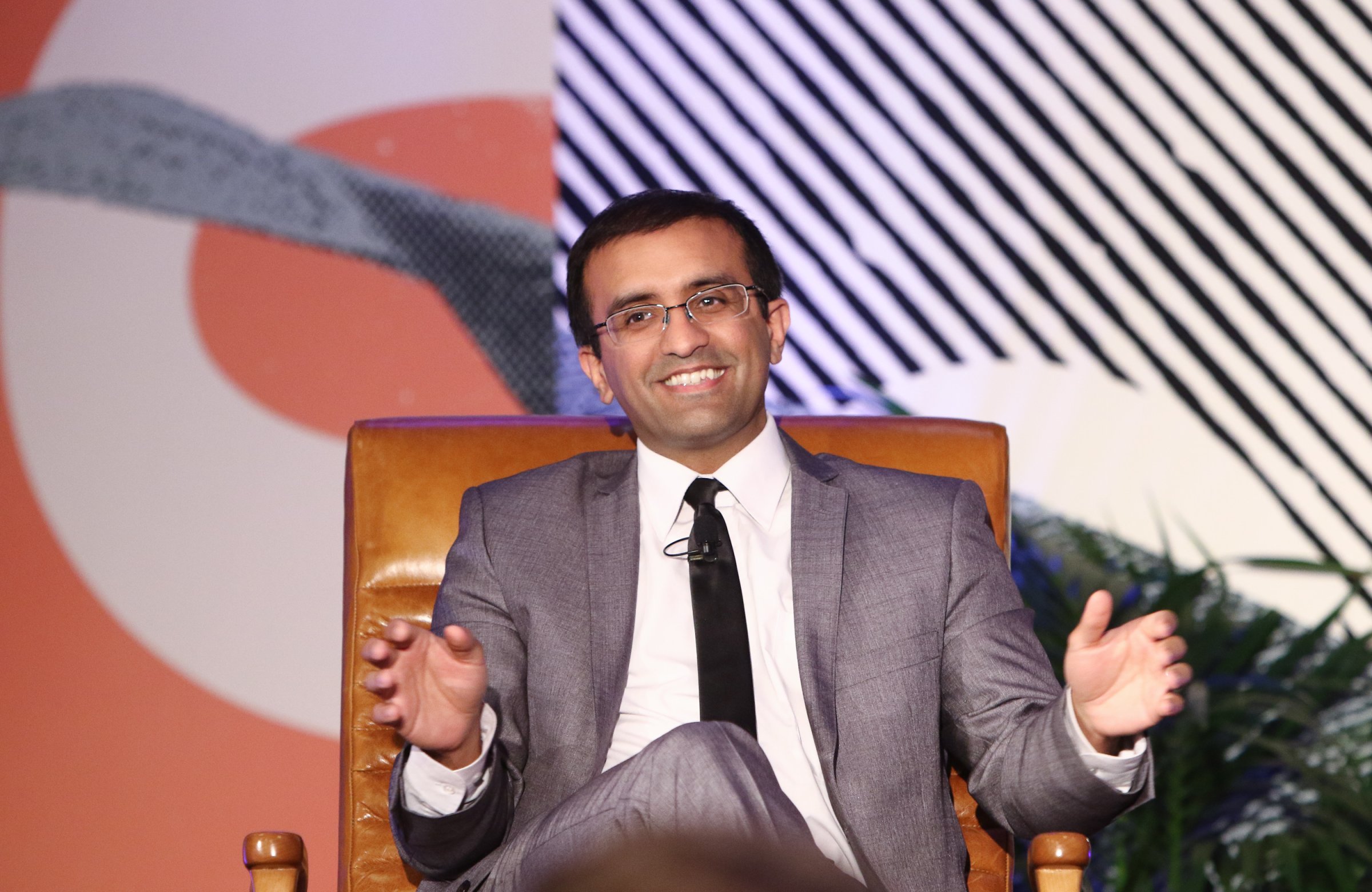
When Dr. Raj Panjabi talks about starting his nonprofit, Last Mile Health, he describes being motivated by both love and outrage.
At nine years old, Panjabi had to flee his home in Liberia to escape civil war; he and his family relocated to the U.S. When Panjabi returned to his home country as a medical student, he discovered there were only 51 doctors left to serve the country’s four million people. As a result, many residents were dying from treatable conditions, especially in rural areas, simply because they lived too far away from doctors and hospitals.
“We’ve kind of written these communities off as too hard to reach or too hard to serve,” Panjabi told an audience on June 6 at the WeWork Security Building in Miami. “No one should die because they live too far from a doctor, not in the 21st century.”
Panjabi’s talk, which was moderated by TIME Staff Writer Alexandra Sifferlin, was the first in the TIME 100 x WeWork Speaker Series, an extension of TIME’s annual list of the 100 most influential people in the world. Panjabi, the CEO of Last Mile Health, was a 2016 TIME 100 honoree.
MORE: TIME and WeWork Partner to Launch TIME 100 x WeWork Speaker Series
To tackle health care gaps like the one in Liberia, Dr. Panjabi founded a nonprofit, Last Mile Health, whose goal is to bring health care within reach of “everyone, everywhere.” The key: community health workers, or individuals recruited from their own communities who are taught basic medical skills, such as how to administer vaccines or rapid diagnostic tests for diseases like malaria, so they can care for people who don’t have immediate access to certified doctors and nurses.
The Last Mile Health model was critical during the Ebola outbreak of 2013-2015, when the virus ravaged Liberia, Sierra Leone and Guinea, ultimately infecting over 28,000 people and killing over 11,000. “There was a lot of fear during that time and a lot of despair,” said Panjabi. “Community health workers didn’t surrender to that fear.” Instead, they treated their friends and neighbors who came down with the disease and educated people on how to protect themselves from infections. By 2016, Liberia, Sierra Leone and Guinea were all declared Ebola-free.
This is why people living in urban areas should pay more attention to the needs of rural communities around the world, argued Panjabi. The Zika, HIV and Ebola epidemics all started in rural rainforest regions in Africa. If the patient zeros had had access to community health workers, it’s entirely possible those diseases wouldn’t have spread as far or as fast. “These things start in the blind spots of any health care system,” said Panjabi. Fixing those blind spots isn’t just “the right thing to do…it’s the smart thing to do.”
In 2017, Panjabi won a $1 million TED Prize for his work with Last Mile Health. Now he’s using those funds to create the Community Health Academy, a virtual platform that aims to educate health workers around; it will offer, among other tools, free training videos that teach people how to vaccinate children, spot early signs of Zika and more. Starting in fall 2018, it will also offer digital classes to teach local leaders how to build community health worker programs in their own countries.
Of course, pioneering a new health care model is no easy task, to say nothing of fighting epidemics like Ebola. But Panjabi remains focused on and inspired by Last Mile Health’s larger goal of saving 30 million lives worldwide by 2030. “In every part of social change,” he said, “you have to be willing to be fearless and brave.”
More Must-Reads from TIME
- Inside Elon Musk’s War on Washington
- Meet the 2025 Women of the Year
- The Harsh Truth About Disability Inclusion
- Why Do More Young Adults Have Cancer?
- Colman Domingo Leads With Radical Love
- How to Get Better at Doing Things Alone
- Cecily Strong on Goober the Clown
- Column: The Rise of America’s Broligarchy
Contact us at letters@time.com